Table of Contents
Come join us now, and enjoy playing your beloved music and browse through great scores of every level and styles!
Can’t find the songbook you’re looking for? Please, email us at: sheetmusiclibrarypdf@gmail.com We’d like to help you!
Sorabji: In the Hothouse (from Two Piano Pieces) sheet music, Noten, partitura, spartiti 楽譜

Best Sheet Music download from our Library.
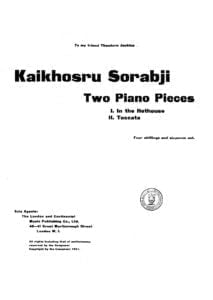
Please, subscribe to our Library.
If you are already a subscriber, please, check our NEW SCORES’ page every month for new sheet music. THANK YOU!
Browse in the Library:
Or browse in the categories menus & download the Library Catalog PDF:
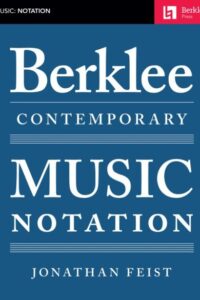
Who was Sorabji?
Kaikhosru Shapurji Sorabji: The Hermit of Modernist Maximalism
In the often-crowded pantheon of 20th-century composers, Kaikhosru Shapurji Sorabji (1892-1988) occupies a unique and enigmatic niche. A composer of staggering ambition, labyrinthine complexity, and self-imposed isolation, Sorabji crafted some of the most monumental, technically demanding, and stylistically idiosyncratic music ever conceived. His work, largely ignored during his lifetime and still challenging audiences today, represents a singular path through modernism – one defined by maximalism, intricate ornamentation, transcendental virtuosity, and a fierce, almost hermetic, independence.
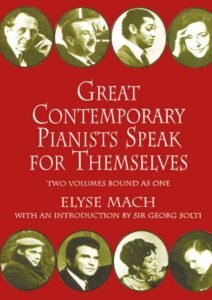
Biography: A Self-Forged Identity
- Birth & Heritage: Born Leon Dudley Sorabji on August 14, 1892, in Chingford, Essex, England. His father was a Parsi engineer from India (thus the Persian-derived name Sorabji), and his mother was English-Spanish. This mixed heritage profoundly shaped his sense of identity, though he felt alienated from both cultures.
- The Name: Around 1914, he legally changed his name to Kaikhosru Shapurji Sorabji. “Kaikhosru” and “Shapurji” were Persian names chosen for their resonance and connection to ancient Persian history and Zoroastrianism, reflecting his deliberate construction of a unique persona.
- Musical Formation: Largely self-taught. He received some piano lessons in his youth but had no formal composition training. His musical education came through voracious listening, score study (especially Bach, Liszt, Busoni, Debussy, Ravel, Scriabin, Szymanowski, Medtner), and wide reading in literature, philosophy, and the occult.
- Early Career & Criticism: Worked as a music critic (under the pseudonym “S. Godfrey”) for outlets like The New Age and The New English Weekly from the 1910s to the 1930s. His critiques were famously acerbic, insightful, and often scathing, particularly targeting English musical provincialism and composers he deemed mediocre (which was most of them).
- The Recluse: Deeply disillusioned by the musical establishment and critical reception to his early performances (which were rare and often controversial), Sorabji gradually withdrew from public musical life starting in the late 1930s. After his mother’s death in 1940, he retreated almost completely to his secluded home “The Eye” in Corfe Castle, Dorset, where he lived with his companion, Reginald Norman Best, until his death. He forbade performances of his music for decades.
- The Ban Lifted: In 1976, pressured by a growing underground interest spearheaded by pianists like Yonty Solomon and Alistair Hinton (who later became his literary executor), Sorabji reluctantly lifted the ban on performances, provided he approved the performer.
- Death: Sorabji died on October 15, 1988, in Winfrith Newburgh, Dorset, leaving behind a colossal legacy of unpublished manuscripts.
Works: Monuments of Sound

Sorabji’s output is vast and overwhelmingly dominated by solo piano music, though he also composed orchestral works, chamber music, organ symphonies, and songs. His works are renowned for their extreme length, density, and technical difficulty, pushing the boundaries of playability.
- Key Masterpieces:
- Opus Clavicembalisticum (1930): His most famous (or infamous) work. A colossal 4+ hour piano epic in 12 movements (including fugues, passacaglias, toccatas, cadenzas), often considered one of the most challenging solo piano works ever written. A summit of contrapuntal complexity and virtuosic display.
- Symphonic Variations for Piano (1935-37): Another monumental work, exploring vast variation forms over an extended duration.
- Sequentia Cyclica super “Dies iræ” ex Missa pro Defunctis (1948-49): A massive cycle of 27 variations on the “Dies Irae” chant, demonstrating his intricate contrapuntal and transformative skills.
- 100 Transcendental Studies (1940-44): True to their name, these studies explore extreme technical and expressive demands far beyond those of Liszt or Chopin.
- Symphonies for Solo Piano: Several exist, including his Symphony No. 2 (“Jāmī”), blending orchestral textures and scope onto the piano.
- Gulistān – Nocturne for Piano (1940): A prime example of his lush, perfumed, and incredibly intricate “Persian”-inspired style.
- Concerti: He wrote several for solo piano and orchestra (e.g., Concerto per suonare da me solo e senza orchestra, per divertirsi), which are symphonic in scale and require superhuman virtuosity.
- Symphonies for Organ: Vast, complex works exploring the sonic possibilities of the instrument.
Analysis of Style: A Universe of Complexity
Sorabji’s style is instantly recognizable yet difficult to categorize. It synthesizes diverse elements into a unique and overwhelming whole:
- Maximalism: This is the defining characteristic. Sorabji embraced extremes:
- Length: Works lasting several hours are common.
- Density: Highly polyphonic textures, often with multiple independent melodic lines woven together in complex counterpoint (influenced by Bach, Busoni).
- Virtuosity: Demands transcendental technique – cascades of notes, complex polyrhythms, wide leaps, immense power, and extreme delicacy. He wrote as if the pianist had four hands.
- Ornamentation: Baroque-like ornamentation (trills, mordents, turns, grace notes) is ubiquitous, often layered and integral to the texture, creating shimmering, kaleidoscopic surfaces (influenced by Scriabin, Szymanowski, Middle Eastern/Persian music).
- Dynamic Range: From barely audible whispers to thunderous, percussive climaxes.
- Harmony: A complex fusion:
- Rooted in late-Romantic chromaticism (Scriabin, Szymanowski, early Schoenberg).
- Freely employed dissonance, clusters, and intricate chord structures.
- Often retained a sense of tonal centers or polarity, even amidst dense chromaticism (unlike strict atonality).
- Incorporated modal inflections, sometimes evoking Persian or Spanish flavors.
- Rhythm: Highly complex and fluid:
- Frequent use of polyrhythms (multiple simultaneous rhythms), cross-rhythms, and nested tuplets (triplets within quintuplets, etc.).
- Tempo often fluctuates wildly, requiring immense control.
- A sense of improvisatory freedom within highly structured forms.
- Form: Often large-scale, complex, and idiosyncratic:
- Favored variations (passacaglias, chaconnes), fugues, toccatas, and intricate multi-movement structures (like the Opus Clavicembalisticum).
- Forms were often expansive and cumulative, building through layered repetition and intensification rather than traditional development.
- Architecture was paramount, even in the densest textures.
- Influences (Assimilated, Not Imitated):
- Ferruccio Busoni: The most profound influence. Busoni’s ideas of “Young Classicism,” the transcendental potential of the piano, the fusion of Bachian counterpoint with modern harmony, and the concept of “Junge Klassizität” resonated deeply. Sorabji dedicated his Opus Clavicembalisticum to Busoni’s memory.
- Franz Liszt: Virtuosity, thematic transformation, large-scale forms, and the symphonic poem concept translated to piano.
- J.S. Bach: Contrapuntal mastery, structural rigor, and the use of forms like fugue and passacaglia.
- Alexander Scriabin: Mysticism, harmonic language, dense textures, and ecstatic climaxes.
- Karol Szymanowski: Sensuous harmony, intricate ornamentation (especially in the “Persian” inspired works like Métopes and Masques), and voluptuous textures.
- Debussy & Ravel: Color, texture, exoticism, and pianistic refinement.
- Mediterranean & Persian Cultures: While not authentically recreating these styles, he evoked their essence through ornamentation, melodic turns, and titles (Gulistān, Jāmī), reflecting his fascination with his Persian heritage and the wider Orient.
- Aesthetic: Sorabji’s music aimed for:
- Transcendence: Pushing beyond perceived limits of instrument, performer, and listener.
- Luxuriance & Opulence: A rich, sensual, almost decadent sound world.
- Intellectual Rigor: Underlying the sensual surface was meticulous structural planning.
- Individualism: A complete rejection of prevailing trends (serialism, neoclassicism, minimalism) in favor of his own uncompromising vision.
Legacy: From Obscurity to Cult Status
Sorabji’s legacy is complex and evolving:
- Decades of Neglect: His self-imposed exile and performance ban meant his music was virtually unknown outside a tiny circle for nearly 40 years. Manuscripts were inaccessible, unplayable, and unpublished.
- The Pioneers (1970s-): The lifting of the ban sparked interest. Pianists like Yonty Solomon, Michael Habermann, Geoffrey Douglas Madge (who made the first complete recording of Opus Clavicembalisticum in 1977), and later Marc-André Hamelin, Jonathan Powell, Fredrik Ullén, and Ronald Stevenson began the monumental task of learning, performing, and recording his works. This required immense dedication and technical prowess.
- Publication & Scholarship: The Sorabji Archive, established by Alistair Hinton (Sorabji’s literary executor), has been crucial in cataloging, editing, and facilitating the publication of scores (primarily by Dover Publications and The Sorabji Music Archive). Scholarly work is gradually increasing.
- Recordings Renaissance: The CD era and digital distribution (YouTube, streaming) have been transformative. Dedicated labels (Altarus, BIS, Toccata Classics, Piano Classics) have released numerous recordings, making this once-inaccessible music available globally. Complete cycles of the 100 Studies and other major works are underway.
- The Cult & The Challenge: Sorabji remains a “composer’s composer” and a cult figure. His music is not mainstream concert fare due to its extreme demands and duration. However, it commands deep respect and fascination among pianists, composers, and listeners drawn to its unique sound world and uncompromising vision. He is seen as the ultimate iconoclast, forging a path utterly independent of 20th-century musical fashions.
- Influence: His direct influence on other composers is hard to pinpoint due to his obscurity, but he stands as a powerful symbol of uncompromising artistic integrity and the exploration of extreme complexity and virtuosity. Composers interested in maximalism, intricate counterpoint, or pushing pianistic limits inevitably encounter his shadow.
- Copyright Controversy: The complex copyright status of his works (involving the Sorabji Archive and publishers) has sometimes been a point of friction within the community of performers and scholars seeking access.
Sorabji: The Solitary Giant
Kaikhosru Shapurji Sorabji was a true original. He inhabited a musical universe entirely of his own making, synthesizing diverse influences into a style characterized by unparalleled complexity, sensuous opulence, and transcendental ambition. His deliberate withdrawal from the world ensured decades of obscurity, but the dedication of pioneering performers and the power of recording technology have brought his extraordinary soundscapes to light. While his music remains challenging and demanding, it offers unparalleled rewards: a journey into a world of labyrinthine beauty, overwhelming power, and intellectual fascination. Sorabji stands as a testament to the power of an utterly individual artistic vision, uncompromising in its scope and ambition, a solitary giant whose monumental creations continue to challenge and inspire. He redefined the possible for the piano and left a legacy that continues to unfold as more performers dare to scale his musical Himalayas.
“In the Hothouse” is one of Sorabji’s most evocative and frequently performed works, serving as a perfect entry point into his dense, sensuous sound world. Here’s a detailed look at this fascinating piece:
Context: Two Piano Pieces (1918)
- Composed: 1918 (early in Sorabji’s career, age 26).
- Publication: First published in 1920, making it one of the earliest Sorabji works available in print.
- The Pair: “In the Hothouse” is paired with “Toccata” – a contrasting, hyper-virtuosic, and structurally complex piece showing his Busoni/Liszt influences. “In the Hothouse” offers the sensual, atmospheric counterpoint.
- Significance: Represents Sorabji’s early mastery of texture, harmony, and evocative atmosphere. It predates his gargantuan works but already displays his unique voice.
“In the Hothouse”: A Sensory Immersion
- Title & Imagery: The title instantly conjures an environment: humid, lush, teeming with exotic, overripe plant life, heavy perfumes, and stifling, enclosed heat. Sorabji translates this sensory overload into sound.
- Form & Structure: Relatively free and rhapsodic. It unfolds as a continuous, organic stream of consciousness rather than adhering to strict classical forms. Think of it as an elaborate, decadent arabesque.
- Style & Character:
- Extreme Sensuality: This is the defining feature. The music drips with lush, complex harmonies and suffocatingly rich textures.
- Harmony: Deeply chromatic, rooted in late Scriabin and early Szymanowski. Expect dense, constantly shifting chords: augmented harmonies, whole-tone inflections, unresolved dissonances creating tension, and sudden moments of surprising consonance like shafts of light piercing foliage. It avoids traditional tonality but gravitates around implied centers.
- Texture: Thick, layered, and constantly in motion. Tremolos, trills, rapid filigree (ornamental passages), and cascading arpeggios create a shimmering, humid haze. Melodies are often embedded within this dense undergrowth rather than standing clearly apart. The writing often requires the pianist to sustain multiple layers simultaneously.
- Rhythm: Fluid and flexible, often obscured by the sheer density of notes and ornamentation. Rubato (expressive tempo fluctuations) is essential. While less overtly complex polyrhythmically than his later works, the rhythmic flow feels organic and improvisatory.
- Dynamics & Articulation: Wide dynamic range, often shifting suddenly between extremes (e.g., thunderous climaxes collapsing into fragile whispers). Articulation varies from sharp staccatos to legatissimo passages that blur together. Pedaling is crucial for sustaining the harmonic haze and creating resonance.
- Ornamentation: Quintessential early Sorabji. Trills, mordents, turns, and grace notes are not mere decoration; they are the texture, creating constant flickering movement and contributing to the claustrophobic, teeming atmosphere. This foreshadows the intricate ornamentation dominating his mature style.
- Emotional Landscape: Evokes opulence, decadence, languor, mystery, stifling heat, hidden dangers, and overwhelming sensory stimulation. There’s a sense of beauty bordering on the grotesque due to its sheer intensity.
Influences Audible in “In the Hothouse”
- Scriabin (Primary): The harmonic language (mystic chords, unresolved dissonance, ecstatic climaxes), the sensual atmosphere, and the use of trills/tremolos are deeply indebted to Scriabin’s late sonatas and poems (e.g., Vers la flamme). Sorabji pushes Scriabin’s decadence further.
- Szymanowski: The opulent textures, perfumed harmonies, and “orientalist” exoticism (though abstracted here) strongly recall Szymanowski’s “Métopes” or “Masques,” which Sorabji admired deeply.
- Debussy: The focus on atmosphere, texture, and harmonic color (whole-tone scales, parallel chords) shows Debussy’s influence, though rendered with far greater density and intensity.
- Ravel: The virtuosic filigree and lush harmonies (think “Gaspard de la Nuit,” especially “Ondine” or “Le gibet”) are a touchstone, again amplified.
- Liszt: The rhapsodic freedom and dramatic gestures hint at Liszt, though filtered through a post-Scriabinesque lens.
Performance Challenges
- Texture & Balance: Maintaining clarity amidst the dense, rapidly shifting textures is paramount. The pianist must carefully voice chords and layers to prevent muddiness while sustaining the essential harmonic haze.
- Ornamentation as Texture: Executing the constant ornamentation smoothly and evenly, integrating it into the melodic and harmonic flow rather than treating it as mere decoration.
- Dynamic Control: Navigating the extreme dynamic contrasts and sudden shifts without sounding jarring. Creating a true pianissimo shimmer within complexity is incredibly difficult.
- Rubato & Phrasing: Applying expressive tempo fluctuations naturally while maintaining the overall structural coherence and forward momentum of the rhapsodic form.
- Pedaling: Using the pedal to create resonance and blend without causing harmonic blurring or loss of rhythmic definition. Requires exceptional sensitivity.
- Stamina & Focus: While shorter than his later works (typically 12-15 minutes), the piece demands intense concentration and physical control to sustain the atmosphere and navigate the technical intricacies.
Legacy & Significance of “In the Hothouse”
- Accessibility: It remains one of Sorabji’s most “accessible” works due to its evocative title, relatively shorter duration, and concentrated expression. It’s a frequent choice for pianists introducing audiences to Sorabji.
- Blueprint: It serves as a crucial blueprint for Sorabji’s mature style, showcasing his core preoccupations: sensuality, harmonic density, intricate ornamentation as texture, and atmospheric evocation, all present in embryonic form.
- Performance History: Despite Sorabji’s later ban, “In the Hothouse” (along with the Toccata) was one of the few pieces occasionally performed during his lifetime (e.g., by Sorabji himself and pianist Reginald Paul) and became a key work for the pioneering generation post-1976 (Yonty Solomon, Michael Habermann, Marc-André Hamelin, Jonathan Powell, Fredrik Ullén).
- Gateway Piece: It functions as a vital “gateway drug” into Sorabji’s world. Its success in conveying its intense atmosphere often encourages listeners to explore his more monumental, complex works.
- Standalone Masterpiece: Regardless of its role as an introduction, it stands as a perfectly formed and powerful piece of early modernist piano writing, a miniature tone poem of extraordinary evocative power.
“In the Hothouse” is a sun-drenched, overripe, and intoxicating immersion into Sorabji’s unique aesthetic. It captures the essence of his sensual maximalism in a concentrated dose, showcasing his debt to Scriabin and Szymanowski while asserting his own distinct voice. Its evocative power, technical brilliance, and relative brevity ensure its enduring place as one of his most beloved and frequently performed works, offering a compelling glimpse into the hothouse of Sorabji’s extraordinary musical imagination.
| Artist or Composer / Score name | Cover | List of Contents |
|---|---|---|
| Jazz in the United States 1890-2011 (Book) |
 |
|
| Jazz Licks Encyclopedia (Guitar with Tablature) |
 |
|
| Jazz LTD over 500 tunes |
 |
|
| Jazz Masters 2010 Jazz Masters (Book) |
 |
|
| Jazz Method Coltrane Patterns |
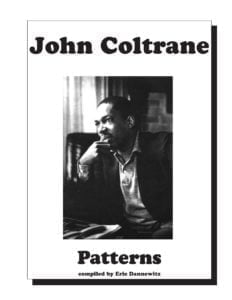 |
Jazz Method Coltrane Patterns |
| Jazz Minuet No. 1 – Oscar Peterson (Musescore File).mscz | ||
| JAZZ ON THE SCREEN – A Jazz and Blues Filmography by David Meeker (Book) |
 |
|
| Jazz Paul Whiteman and Mary Margaret McBride Illustrated (Vintage rare book 1926) |
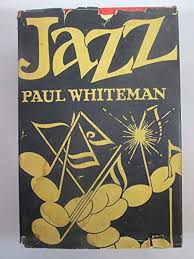 |
|
| Jazz Piano A Jazz History Billy Taylor 1921 2010 Book |
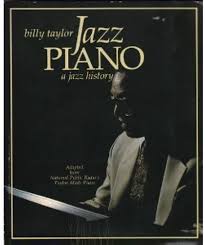 |
|
| Jazz Piano Best Selection |
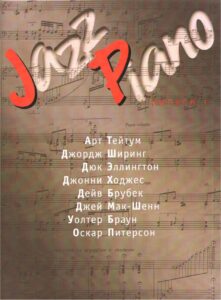 |
Jazz Piano Best Selection |
| Jazz Piano Cocktails. Volume 1 |
 |
Jazz Piano Cocktails. Volume 1 |
| Jazz Piano Cocktails. Volume 2 |
 |
Jazz Piano Cocktails. Volume 2 |
| Jazz Piano Improvisation A Classical Approach By Dominic Alldis |
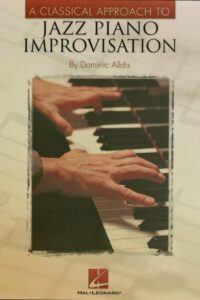 |
|
| Jazz Piano Legends Partitures Collections |
 |
Jazz Piano Legends |
| Jazz piano made easy |
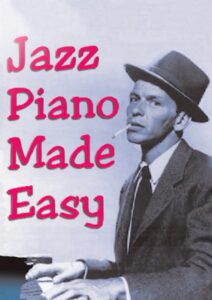 |
|
| Jazz Piano Method The Player’s Guide To Authentic Stylings By Mark David |
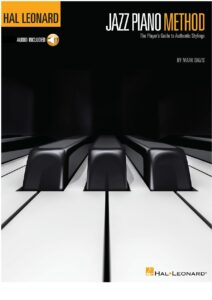 |
|
| Jazz Piano New Standard Vol. 1 |
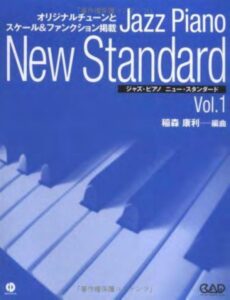 |
Jazz Piano New Standard Vol. 1 |
| Jazz piano scales grades 1-5 ABRSM (blues- D,C,F,Dflat,E,Fsharp,G) |
 |
|
| Jazz Piano Schule Die – Der Leichte Einstieg In Die Welt Des Jazz-Piano-Spiels Lehrbuch Für Klavier (Michael Gundlach) Book |
 |
|
| Jazz Piano Solos – Oscar Peterson |
 |
Jazz piano solos sheet music |
| Jazz Piano Solos Front Line |
 |
Jazz Piano Solos Front Line |
| Jazz Piano Solos Series Vol 12 Swinging Jazz |
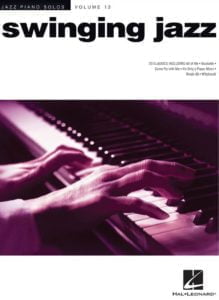 |
swinging jazz |
| Jazz Piano Solos Series Volume 13 – Jazz Gems |
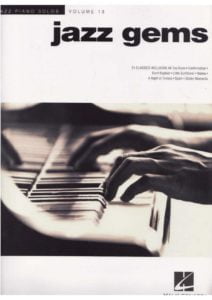 |
Jazz Piano Solos Volume 13 – Jazz Gems |
| Jazz Piano The Left Hand (The Steinway Library of Piano Music) |
 |
Jazz Piano The Left Hand (The Steinway Library of Piano Music) |
| Jazz Piano Voicings An Essential Resource For Aspiring Jazz Musicians by Rob Mullins |
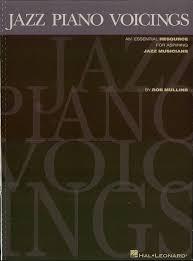 |
Jazz Piano Voicings An Essential Resource For Aspiring Jazz Musicians by Rob Mullins |
| Jazz Pieces For Piano Issue 1 1982 |
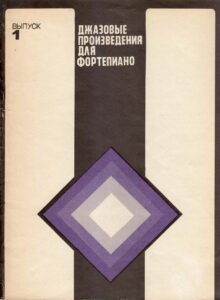 |
|
| Jazz Pieces For Piano Issue 2 1986 |
 |
|
| Jazz Play Along – Favorite Standards “Out of Nowhere” by Edward Heyman and Johnny Green | Aebersold – Vol 22 – Favorite Standards – Disk 02 – Track 05 – Out of Nowhere | |
| Jazz Play Along Vol. 142 – Charlie Parker Gems With Audio Mp3 Tracks |
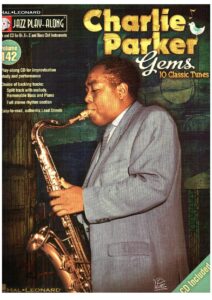 |
Hal_Leonard_-_Jazz_Play_Along_Vol_142_-_Charlie_Parker_Gems |
| Jazz Play Along Vol. 71 – Cole Porter Classics With Audio Mp3 Tracks |
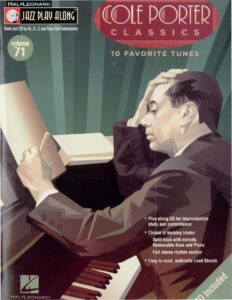 |
Jazz play along Vol.71 – Cole Porter Classics |
| Jazz Play Along Vol. 74 – Best Jazz Classics with MP3 audio tracks |
 |
JAZZ PLAY ALONG – Vol.74 – Best Jazz Classics |
| Jazz Play Along – Guitar Classics (pdf + audio MP3 tracks) with Tablature |
 |
Jazz Play Along – Guitar Classics (pdf + audio MP3 tracks) |
| Jazz Play along – Vol. 85 Motown Hits pdf book with audio MP3 tracks |
 |
Jazz Play along – Vol. 85 Motown Hits pdf book with audio MP3 tracks |
| Jazz Play Along Billy Joel Vol. 181 With Audio Mp3 Tracks |
 |
Jazz Play Along Vol 181 Billy Joel |
| Jazz Play Along CLASSIC JAZZ BALLADS VOL. 72 (with audio MP3) |
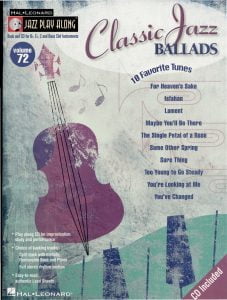 |
Hal Leonard – Vol.72 – Classic Jazz Ballads |
| Jazz Play Along Henry Mancini Vol. 154 With Audio Mp3 Tracks |
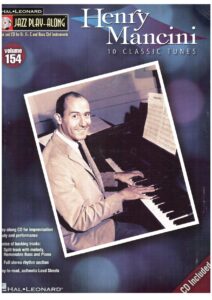 |
Jazz Play Along Vol 154 Henry Mancini |
| Jazz Play Along LOVER 4/4 by Lorenz Hart & Richard Rodgers (Lead Sheet) |
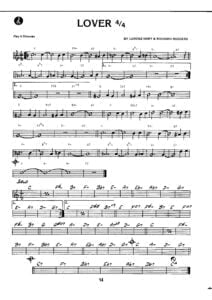 |
LOVER 4/4 |
| Jazz Play Along Vol. 01 – Duke Ellington with audio MP3 |
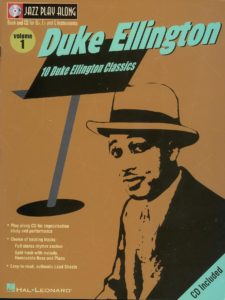 |
Jazz Play-Along Vol. 01 – Duke Ellington with audio MP3 |
| Jazz Play Along Vol. 100 – Louis Armstrong PDF with MP3 audio tracks |
 |
Jazz_Play_Along_Vol_100_-_Louis_Armstrong |
| Jazz Play Along Vol. 102 – Jazz Pop PDF with MP3 audio tracks |
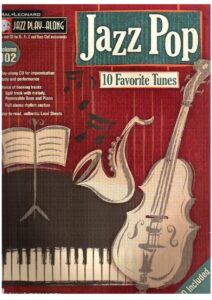 |
Jazz_Play_Along_Vol_102_-_Jazz_Pop |
| Jazz Play Along Vol. 104 – Elton John with audio MP3 |
 |
Jazz Play-Along Vol. 104 – Elton John with audio MP3 |
| Jazz Play Along Vol. 105 – Soulful Jazz with MP3 audio tracks to Play Along |
 |
JAZZ PLAY ALONG – Vol.105 – Soulful Jazz (C,Bb,Eb) |
| Jazz Play Along Vol. 106 – Slo’ Jazz with MP3 audio tracks to Play Along |
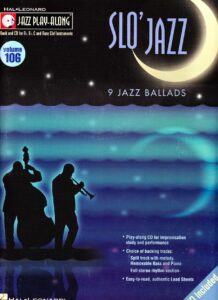 |
Hal Leonard – Vol.106 – Slo’ Jazz |
| Jazz Play Along Vol. 107 – Motown Classics with MP3 audio tracks to Play Along |
 |
Hal Leonard – Vol.107 – Motown Classics |
| Jazz Play Along Vol. 11 Rodgers & Hart Favourites (with MP3) |
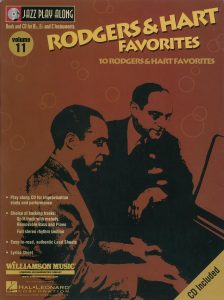 |
Jazz Play Along Vol. 11 Rodgers HArt Favourites |
| Jazz Play Along Vol. 117 Antonio Carlos Jobim More Hits + MP3 audio tracks |
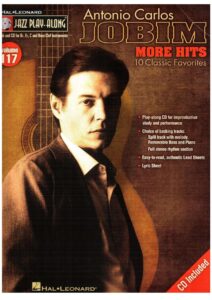 |
Jazz Play Along Vol. 117 Antonio Carlos Jobim More Hits |
| Jazz Play Along Vol. 12 Essential Jazz Classics With Audio Mp3 |
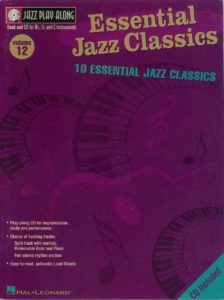 |
Jazz Play-Along Vol. 12 – Essential Jazz Classics |
| Jazz Play Along Vol. 122 – Paul Simon with MP3 audio tracks to Play Along |
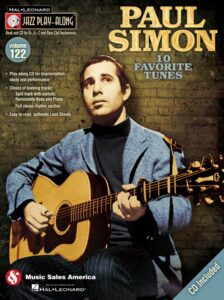 |
Hal Leonard – Vol.122 – Paul Simon |
| Jazz Play Along Vol. 123 – Bacharach and David PDF with MP3 audio tracks |
 |
Jazz_Play_Along_Vol_123_-_Bacharach_amp_David |
| Jazz Play Along Vol. 127 – Chuck Mangione PDF with MP3 audio tracks |
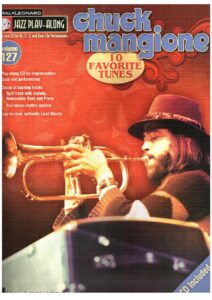 |
Jazz_Play_Along_Vol_127_-_Chuck_Mangione |
| Jazz Play Along Vol. 13 – John Coltrane – PDF with MP3 audio tracks |
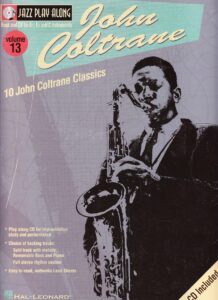 |
Hal Leonard – Vol.13 – John Coltrane |
| Jazz Play Along Vol. 132 – Stan Getz Essentials with MP3 audio tracks |
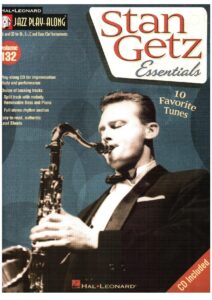 |
Jazz_Play_Along_Vol_132_-_Stan_Getz_Essentials |
| Jazz Play Along Vol. 133 – Stan Getz Favorites with MP3 audio tracks |
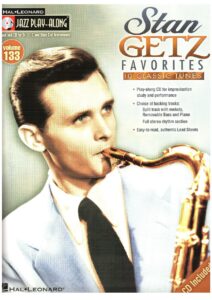 |
Jazz_Play_Along_Vol_133_-_Stan_Getz_Favorites |
| Jazz Play Along Vol. 139 – Julian Cannonball Adderley + MP3 audio tracks |
 |
Jazz_Play_Along_Vol_139_-_Julian_Cannonball_Adderley |
| Jazz Play Along Vol. 14 – Irving Berlin with audio MP3 |
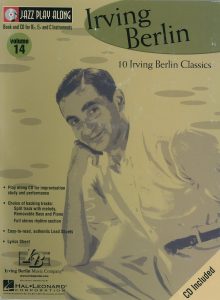 |
Jazz Play-Along Volume 14 – Irving Berlin_compressed |
| Jazz Play Along Vol. 14 Herbie Hancock (with MP3) |
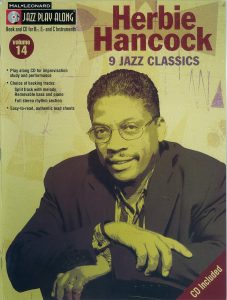 |
Jazz Play Along Vol. 14 Herbie Hancock |
| Jazz Play Along Vol. 146 Ramsey Lewis with MP3 audio tracks |
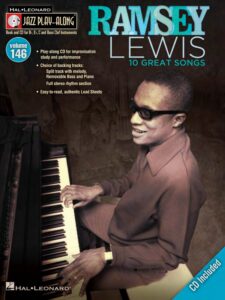 |
Jazz Play Along Vol 146 Ramsey Lewis |
| Jazz Play Along Vol. 147 Samba with MP3 audio tracks |
 |
Jazz Play Along Vol 147 Samba |
| Jazz Play Along Vol. 15 – Rodgers & Hammerstein – PDF with MP3 audio tracks |
 |
Hal Leonard – Vol.15 – Rodgers & Hammerstein |
| Jazz Play Along Vol. 150 – Jazz Improv Basics with MP3 audio tracks to Play Along |
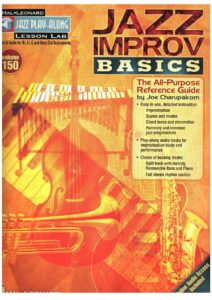 |
Jazz_Play_Along_Vol_150_-_Jazz_Improv_Basics |
| Jazz Play Along Vol. 153 – Kenny Garrett with MP3 audio tracks to Play Along |
 |
Jazz_Play_Along_Vol_153_-_Kenny_Garrett |
| Jazz Play Along Vol. 155 Smooth Jazz Classics with MP3 audio tracks |
 |
Jazz Play Along Vol 155 Smooth Jazz Classics |
| Jazz Play Along Vol. 158 Jazz Covers Rock with MP3 audio tracks to Play Along |
 |
Jazz Play Along Vol 158 Jazz Covers Rock |
| Jazz Play Along Vol. 16 Cole Porter With Audio Mp3 |
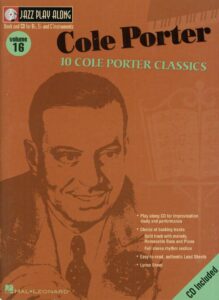 |
Jazz Play-Along Vol. 16 – Cole Porter |
| Jazz Play Along Vol. 164 – Herb Alpert with MP3 audio tracks to Play Along |
 |
Jazz_Play_Along_Vol_164_-_Herb_Alpert |
| Jazz Play Along Vol. 165 George Benson with MP3 audio tracks |
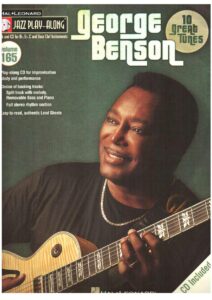 |
Jazz Play Along Vol 165 George Benson |
| Jazz Play Along Vol. 17 – Count Basie – PDF with MP3 audio tracks |
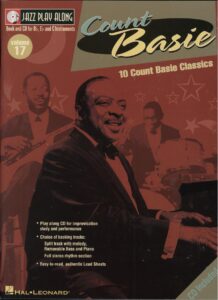 |
Hal Leonard – Vol.17 – Count Basie |
| Jazz Play Along Vol. 174 – Tin Pan Alley with MP3 audio tracks to Play Along |
 |
Jazz_Play_Along_Vol_174_-_Tin_Pan_Alley |
| Jazz Play Along Vol. 177 – II-V-I PDF with MP3 audio tracks |
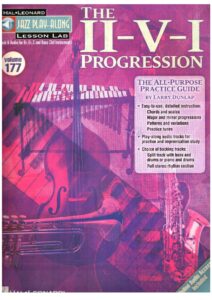 |
Jazz_Play_Along_Vol_177_-_II-V-I |
| Jazz Play Along Vol. 178 Jazz Funk with MP3 audio tracks to Play Along |
 |
Jazz Play Along Vol 178 Jazz Funk |
| Jazz Play Along Vol. 18 Harold Arlen (with MP3) |
 |
Harold Arlen play along |
| Jazz Play Along Vol. 180 Michael Jackson with MP3 audio tracks |
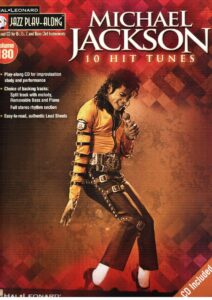 |
Jazz Play Along Vol 180 Michaiel Jackson |
| Jazz Play Along Vol. 182 Rhapsody in Blues with MP3 audio tracks |
 |
Jazz Play Along Vol 182 Rhapsody In Blue |
| Jazz Play Along Vol. 185 Jazz Fusion with MP3 audio tracks |
 |
Jazz Play Along Vol 185 Jazz Fusion |
| Jazz Play Along Vol. 19 – Cool Jazz with MP3 audio tracks |
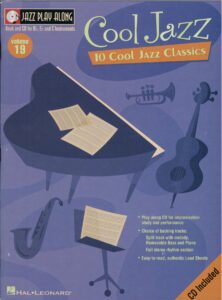 |
Jazz Play Along Volume 19 – Cool Jazz with MP3 audio tracks sheet music pdf |
| Jazz Play Along Vol. 20 – Christmas Carols – PDF with MP3 audio tracks |
 |
Hal Leonard – Vol.20 – Christmas Carols |
| Jazz Play Along Vol. 21 – Rodgers & Hart Classics (with audio MP3) |
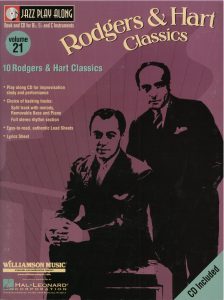 |
Rodgers & Hart Classics |
| Jazz Play Along Vol. 22 – Wayne Shorter – PDF with MP3 audio tracks |
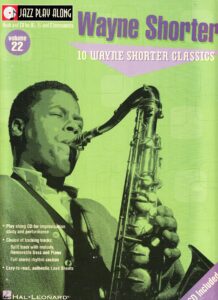 |
Hal Leonard – Vol.22 – Wayne Shorter |
| Jazz Play Along Vol. 23 – Latin Jazz – PDF with MP3 audio tracks 10 latin Jazz Classics |
 |
Hal Leonard – Vol.23 – Latin Jazz (Bb,Eb) |
| Jazz Play Along Vol. 24 – Early Jazz Standards – PDF with MP3 audio tracks |
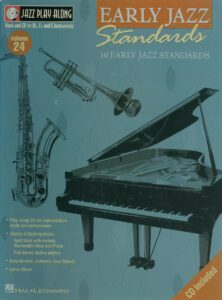 |
Early Jazz Standards Jazz Play Along Volume 24 |
| Jazz Play Along Vol. 25 – Christmas Jazz – PDF with MP3 audio tracks |
 |
Hal Leonard – Vol.25 – Christmas Jazz |
| Jazz Play Along Vol. 26 – Charlie Parker – PDF with MP3 audio tracks |
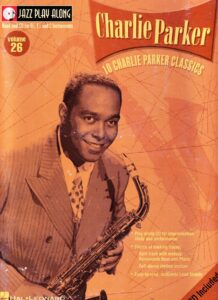 |
Hal Leonard – Vol.26 – Charlie Parker |
| Jazz Play Along Vol. 27 – Great Jazz Standards with audio MP3 |
 |
vol 27 great jazz standards |
| Jazz Play Along Vol. 28 – Big Band Era – PDF with MP3 audio tracks |
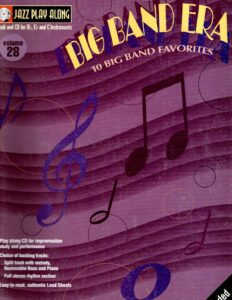 |
Hal Leonard – Vol.28 – Big Band Era |
| Jazz Play Along Vol. 29 – John Lennon & Paul McCartney – PDF with MP3 audio tracks |
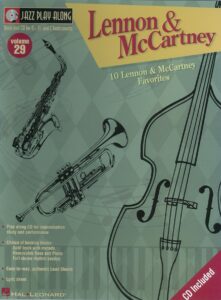 |
Hal Leonard – Vol.29 – Lennon & McCartney |
| Jazz Play Along Vol. 3 – The Blues – PDF with MP3 audio tracks |
 |
Hal Leonard – Vol.3 – The Blues |
| Jazz Play Along Vol. 30 – Blues’ Best 10 blues favourites (with audio MP3) |
 |
Jazz Play-Along Vol. 30 – Blues’ Best 10 blues favourites-compressed |
| Jazz Play Along Vol. 31 – Jazz In Three – PDF with MP3 audio tracks |
 |
Hal Leonard – Vol.31 – Jazz In Three |
| Jazz Play Along Vol. 32 – Best of swing – PDF with MP3 audio tracks |
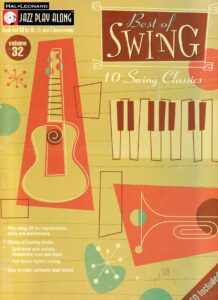 |
Hal Leonard – Vol.32 – Best of swing |
| Jazz Play Along Vol. 32 – Best of Swing (Ver.2) (Bb) – PDF with MP3 audio tracks |
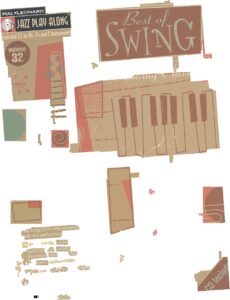 |
Hal Leonard – Vol.32 – Best of Swing (Ver.2) (Bb) |
| Jazz Play Along Vol. 33 – Sonny Rollins – PDF with MP3 audio tracks |
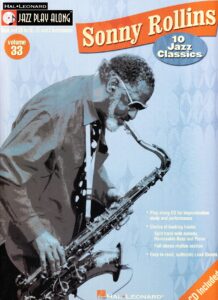 |
Hal Leonard – Vol.33 – Sonny Rollins |
| Jazz Play Along Vol. 34 – All Time Standards – PDF with MP3 audio tracks |
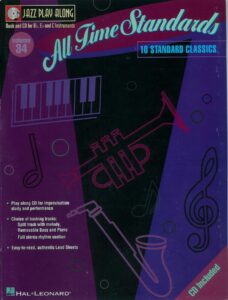 |
Hal Leonard – Vol.34 – All Time Standards |
| Jazz Play Along Vol. 35 – Blues Jazz – PDF with MP3 audio tracks |
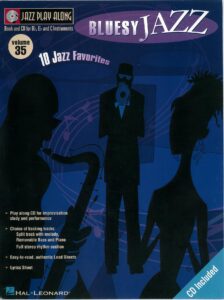 |
Hal Leonard – Vol.35 – Blues Jazz |
| Jazz Play Along Vol. 36 – Horace Silver – PDF with MP3 audio tracks |
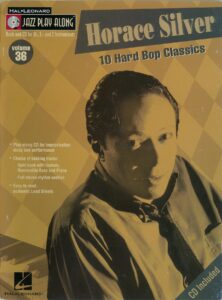 |
Hal Leonard – Vol.36 – Horace Silver |
| Jazz Play Along Vol. 37 – Bill Evans – PDF with MP3 audio tracks |
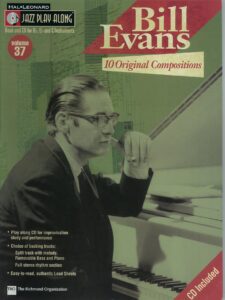 |
Hal Leonard – Vol.37 – Bill Evans |
| Jazz Play Along Vol. 38 – Yuletide Jazz – PDF with MP3 audio tracks |
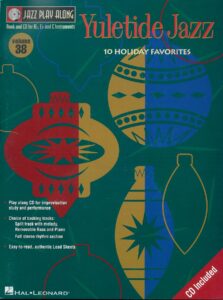 |
Jazz Play Along Vol. 38 – Yuletide Jazz |
| Jazz Play Along Vol. 39 – All The Things You Are & More Jerome Kern Songs – PDF with MP3 audio tracks |
 |
Hal Leonard – Vol.39 – All The Things You Are & More Jerome Kern Songs |
| Jazz Play Along Vol. 4 – Jazz Ballads (with audio MP3) |
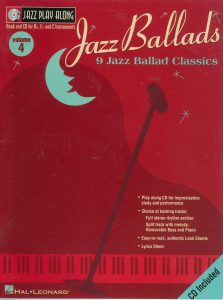 |
Hal Leonard – Vol.04 – Jazz Ballads |
| Jazz Play Along Vol. 40 – Bossa Nova with MP3 audio tracks |
 |
Jazz play along vol 40 Bossa Nova |
| Jazz Play Along Vol. 41 – Classic Duke Ellington – PDF with MP3 audio tracks |
 |
Hal Leonard – Vol.41 – Classic Duke Ellington |
| Jazz Play Along Vol. 42 – Gerry Mulligan Favorites – PDF with MP3 audio tracks |
 |
Hal Leonard – Vol.42 – Gerry Mulligan Favorites |
| Jazz Play Along Vol. 43 – Gerry Mulligan Classics – PDF with MP3 audio tracks |
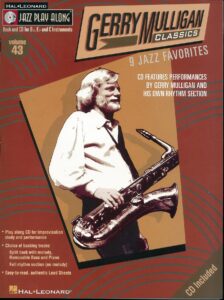 |
Hal Leonard – Vol.43 – Gerry Mulligan Classics |
| Jazz Play Along Vol. 44 – Oliver Nelson – PDF with MP3 audio tracks |
 |
Hal Leonard – Vol.44 – Oliver Nelson |
| Jazz Play Along Vol. 45 – Jazz At The Movies – PDF with MP3 audio tracks |
 |
Hal Leonard – Vol.45 – Jazz At The Movies |
| Jazz Play Along Vol. 46 Broadway Jazz Standards With Audio Mp3 |
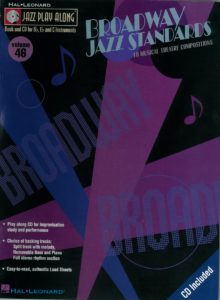 |
BROADWAY JAZZ STANDARDS VOL 46 |
| Jazz Play Along Vol. 47 – Classic Jazz Ballads (with audio MP3) |
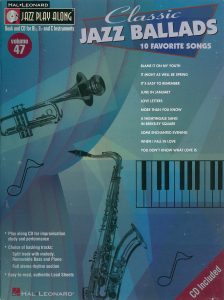 |
Hal Leonard – Vol.47 – Classic Jazz Ballads |
| Jazz Play Along Vol. 48 – Bebop Classics with audio MP3 |
 |
Vol 48 Bebop classics |
| Jazz Play Along Vol. 49 – Miles Davis Standards – PDF with MP3 audio tracks |
 |
Hal Leonard – Vol.49 – Miles Davis Standards |
| Jazz Play Along Vol. 5 – Bebop Classics – PDF with MP3 audio tracks |
 |
Hal Leonard – Vol.5 – Bebop Classics |
| Jazz Play Along Vol. 50 – Great Jazz Classics – PDF with MP3 audio tracks |
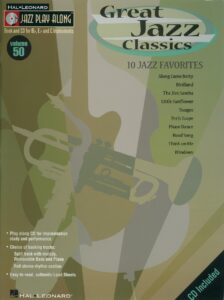 |
Hal Leonard – Vol.50 – Great Jazz Classics |
| Jazz Play Along Vol. 51 – Up-Tempo Jazz – PDF with MP3 audio tracks |
 |
Hal Leonard – Vol.51 – Up-Tempo Jazz |
| Jazz Play Along Vol. 52 – Stevie Wonder – PDF with MP3 audio tracks |
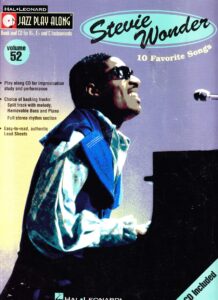 |
Hal Leonard – Vol.52 – Stevie Wonder |
| Jazz Play Along Vol. 53 – Rhythm Changes – PDF with MP3 audio tracks |
 |
Hal Leonard – Vol.53 – Rhythm Changes |
| Jazz Play Along Vol. 54 – Moonlight in Vermont – PDF with MP3 audio tracks |
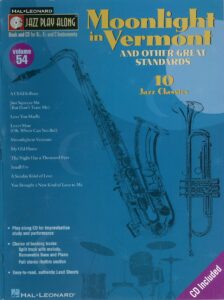 |
Hal Leonard – Vol.54 – Moonlight in Vermont |
| Jazz Play Along Vol. 55 – Benny Golson – PDF with MP3 audio tracks |
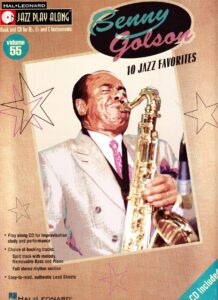 |
Hal Leonard – Vol.55 – Benny Golson |
| Jazz Play Along Vol. 56 – Georgia On My Mind (with audio MP3) Songs by Hoagy Carmichael |
 |
Georgia on my mind play along |
| Jazz Play Along Vol. 57 – Vince Guaraldi – PDF with MP3 audio tracks |
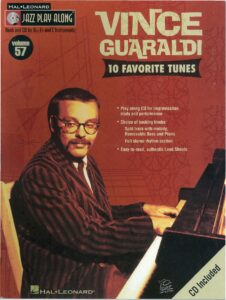 |
Hal Leonard – Vol.57 – Vince Guaraldi |
| Jazz Play Along Vol. 58 – More John Lennon and Paul McCartney – PDF with MP3 audio tracks |
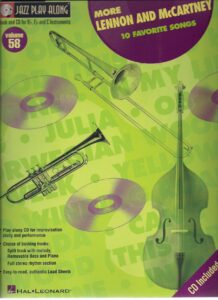 |
Hal Leonard – Vol.58 – More Lennon and McCartney |
| Jazz Play Along Vol. 59 – Soul Jazz – PDF with MP3 audio tracks |
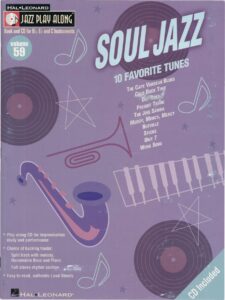 |
Hal Leonard – Vol.59 – Soul Jazz |
| Jazz Play Along Vol. 6 – Jazz Classics – PDF with MP3 audio tracks |
 |
Jazz Play Along Vol 06 Jazz Classics With Easy Changes |
| Jazz Play Along Vol. 60 – Dexter Gordon – PDF with MP3 audio tracks |
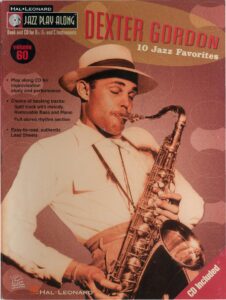 |
Hal Leonard – Vol.60 – Dexter Gordon |
| Jazz Play Along Vol. 61 – Mongo Santamaria – PDF with MP3 audio tracks |
 |
Hal Leonard – Vol.61 – Mongo Santamaria |
| Jazz Play Along Vol. 62 – Jazz-Rock Fusion with audio MP3 | Jazz Play-Along Volume 62 – Jazz-Rock Fusion with audio MP3 | Jazz Play-Along Volume 62 – Jazz-Rock Fusion with audio MP3 |
| Jazz Play Along Vol. 63 – Classical Jazz sheet music with audio MP3 |
 |
Jazz Play-Along Volume 63 – Classical Jazz sheet music |
| Jazz Play Along Vol. 64 – TV Tunes – PDF with MP3 audio tracks |
 |
Hal Leonard – Vol.64 – TV Tunes |
| Jazz Play Along Vol. 65 – Smooth Jazz – PDF with MP3 audio tracks |
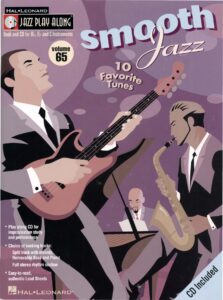 |
Hal Leonard – Vol.65 – Smooth Jazz |
| Jazz Play Along Vol. 66 – A Charlie Brown Christmas – PDF with MP3 audio tracks |
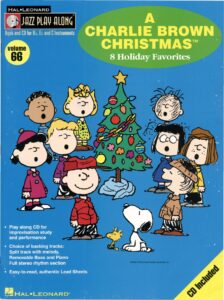 |
Jazz Play Along Vol. 66 – A Charlie Brown Christmas |
| Jazz Play Along Vol. 67 – Chick Corea With Audio MP3 |
 |
Jazz Play-Along Volume 67 – Chick Corea With Audio Mp3 |
| Jazz Play Along Vol. 68 – Charles Mingus – PDF with MP3 audio tracks |
 |
Hal Leonard – Vol.68 – Charles Mingus |
| Jazz Play Along Vol. 69 – Classic Jazz – PDF with MP3 audio tracks |
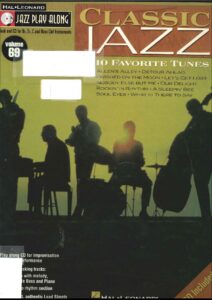 |
Hal Leonard – Vol.69 – Classic Jazz |
| Jazz Play Along Vol. 7 – Essential Jazz Standards with audio MP3 |
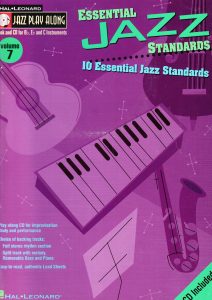 |
Hal Leonard – Vol.7 – Essential Jazz Standards |
| Jazz Play Along Vol. 70 – The Doors Bb PDF with MP3 audio tracks |
 |
Jazz_Play_Along_Vol_70_-_The_Doors_Bb |
| Jazz Play Along Vol. 73 – Jazz Blues with MP3 audio tracks |
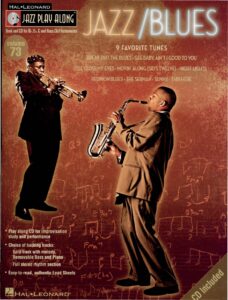 |
JAZZ PLAY ALONG – Vol.73 – Jazz Blues |
| Jazz Play Along Vol. 75 – Paul Desmond PDF with MP3 audio tracks |
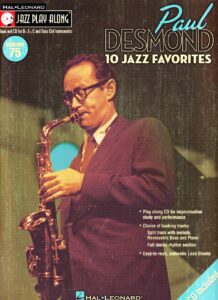 |
JAZZ PLAY ALONG – Vol.75 – Paul Desmond |
| Jazz Play Along Vol. 76 – Broadway Jazz Ballads PDF with MP3 audio tracks |
 |
Jazz_Play_Along_Vol_76_-_Broadway_Jazz_Ballads |
| Jazz Play Along Vol. 77 Jazz on Broadway WITH AUDIO MP3 tracks |
 |
Jazz on Broadway Jazz Play-Along Volume 77 – WITH AUDIO MP3 |
| Jazz Play Along Vol. 78 – Steely Dan with MP3 audio tracks to Play Along |
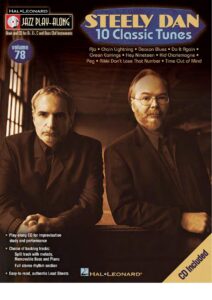 |
JAZZ PLAY ALONG – Vol.78 – Steely Dan |
| Jazz Play Along vol. 81 – Frank Sinatra Classics (PDF + MP3 audio tracks) |
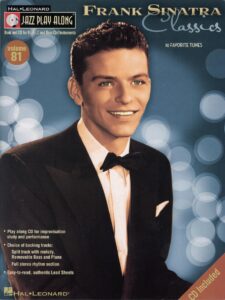 |
Frank Sinatra Classics |
| Jazz Play Along Vol. 83 Andrew Lloyd Webber With Mp3 Audio Tracks |
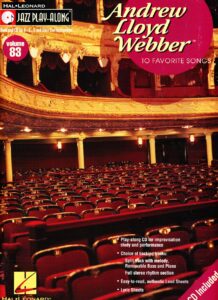 |
Hal Leonard – Vol.83 – Andrew Lloyd Webber |
| Jazz Play Along Vol. 86 Benny Goodman with audio MP3 |
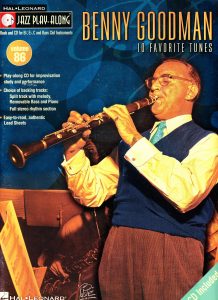 |
Jazz Play-Along Volume 86 – Benny Goodman |
| Jazz Play Along Vol. 9 – Dizzy Gillespie – PDF with MP3 audio tracks |
 |
Hal Leonard – Vol.9 – Dizzy Gillespie |
| Jazz Play Along Vol. 94 – Ray Charles PDF with MP3 audio tracks |
 |
Jazz_Play_Along_Vol_94_-_Ray_Charles |
| Jazz Play Along Vol. 95 – Jazz at the Lounge Eb Bb PDF with MP3 audio tracks |
 |
Jazz Play Along Vol. 95 – Jazz at the Lounge Eb Bb PDF with MP3 audio tracks contents |
| Jazz Play Along Vol. 97 – Maybe I’m Amazed with MP3 audio tracks to Play Along |
 |
JAZZ PLAY ALONG – Vol.97 – Maybe I’m Amazed |
| Jazz Play Along Volume 10 – Disney Classics with audio MP3 |
 |
Jazz Play-Along Vol. 10 – Disney Classics |
| Jazz Pop Jazz Piano Solos Series Volume 8 (22 Classics) |
 |
Jazz Pop Jazz Piano Solos Volume 8 (22 Classics) Contents |
| Jazz Practice Ideas With Your Real Book Jazz Improvisation Series By Andy Mcwain |
 |
|
| Jazz Riffs For Piano Modal Jazz |
 |
|
| Jazz Riffs for Piano – Modal Jazz (Musescore File).mscz | ||
| Jazz Riffs For Piano (Musescore File).mscz |
